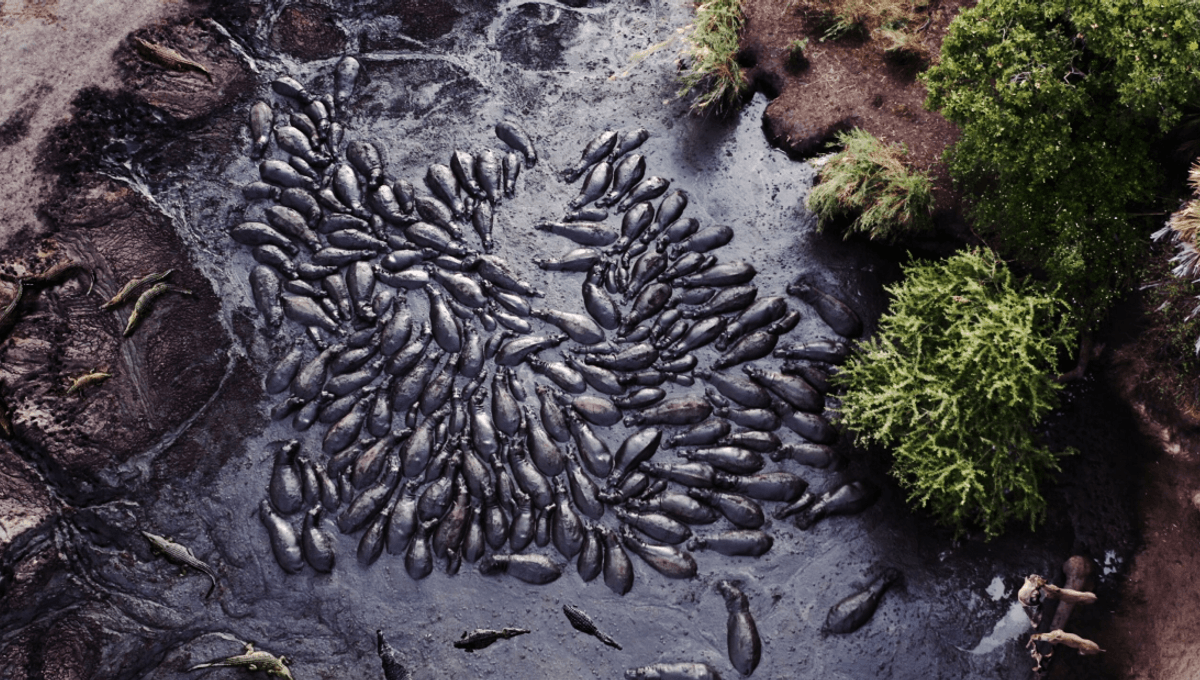
At IFLScience, we bloody love a nature documentary. They bring the wild into our homes so that we can travel the globe from the safety of our sofas, but every now and then, they deliver a scene so heartbreaking it stays with you for a long time. Most recently, this included the curious behavior of a herd of hippos following the death of an old bull.
The scene unfolds in Katavi: Africa’s Fallen Paradise, a new series being aired by PBS Nature that explores the heart of Africa’s Great Rift Valley. The Katavi National Park spans more than 7,800 square kilometers (3,000 square miles) of western Tanzania, and it was here that the filmmakers captured a once-in-a-lifetime event as a severe drought set in following heavy rains.
These weather extremes test even the most impressive of wildlife, from lions to crocodiles and hippos. It marked the toughest drought in almost a century, and one that the animals struggled to survive.
One individual that fell was an old male hippo, his bloated body floating in the water surrounded by the rest of his herd. What unfolded next is something we’ve seen before in other animals thought to mourn like elephants, but something that’s considered a rare observation among hippos.
“As a new day dawns on a radically changed hippo colony, the old bull who was once their protector, the father of their young, lies dead in one of the last remaining water channels,” says the series narrator. “One by one, the clan approach and begin gently nuzzling him. It’s not clear what is happening here.”
“As more gather around his body, it’s hard not to interpret this behavior as mourning. Or at least as a way of coming to terms with their loss. This type of procession has been observed with elephants, but is extremely rare amongst hippos.”
In 2018, scientists witnessed a female hippo interacting with the carcass of a juvenile. She repeatedly moved it around and lifted it out of the water, and chased off crocodiles trying to feed on it. This aggression was unusual between this group of hippos and crocodiles, the scientists stated, and it’s possible her altered behavior was a kind of epimeletic behavior, which describes animals attempting to care for sick, injured, or dead individuals of the same species.
This behavior has been observed among a wide range of animals, from primates to orcas and elephants, and has been compared in some instances to a kind of grieving. It’s one of several tear-jerking displays seen in nature after the death of an animal, and if you really want to give those ducts a workout, why not watch the final colorful display of a Labord’s chameleon before her death?
If you’ll excuse us, we need some tissues.
Source Link: Hippos Appear To Mourn Their Dead In “Extremely Rare” And Heartbreaking Footage